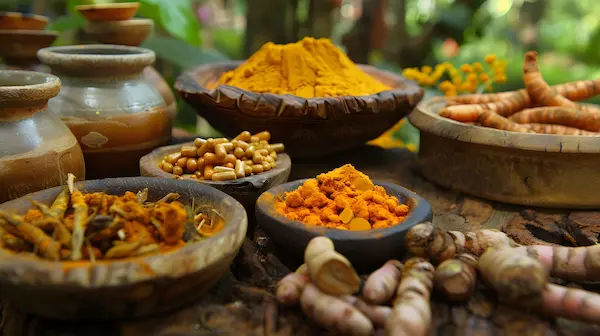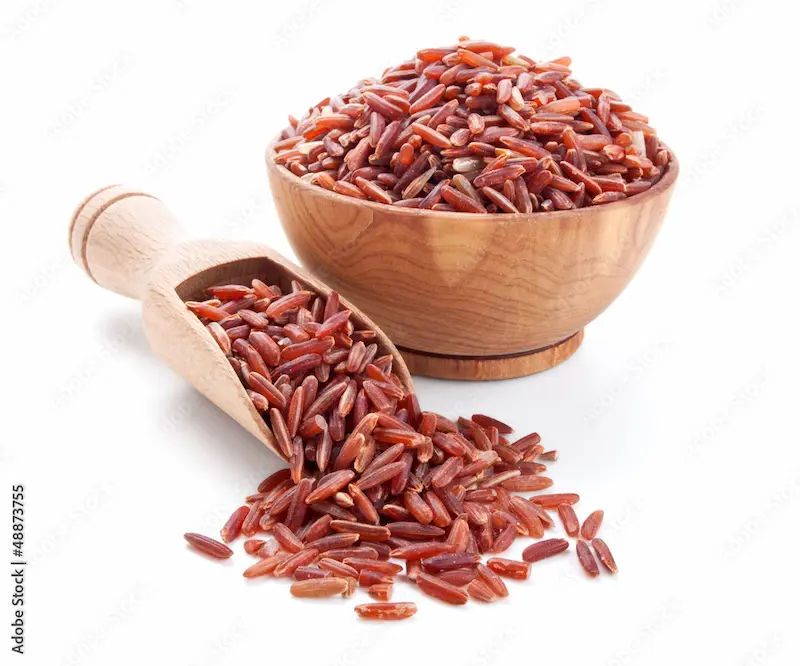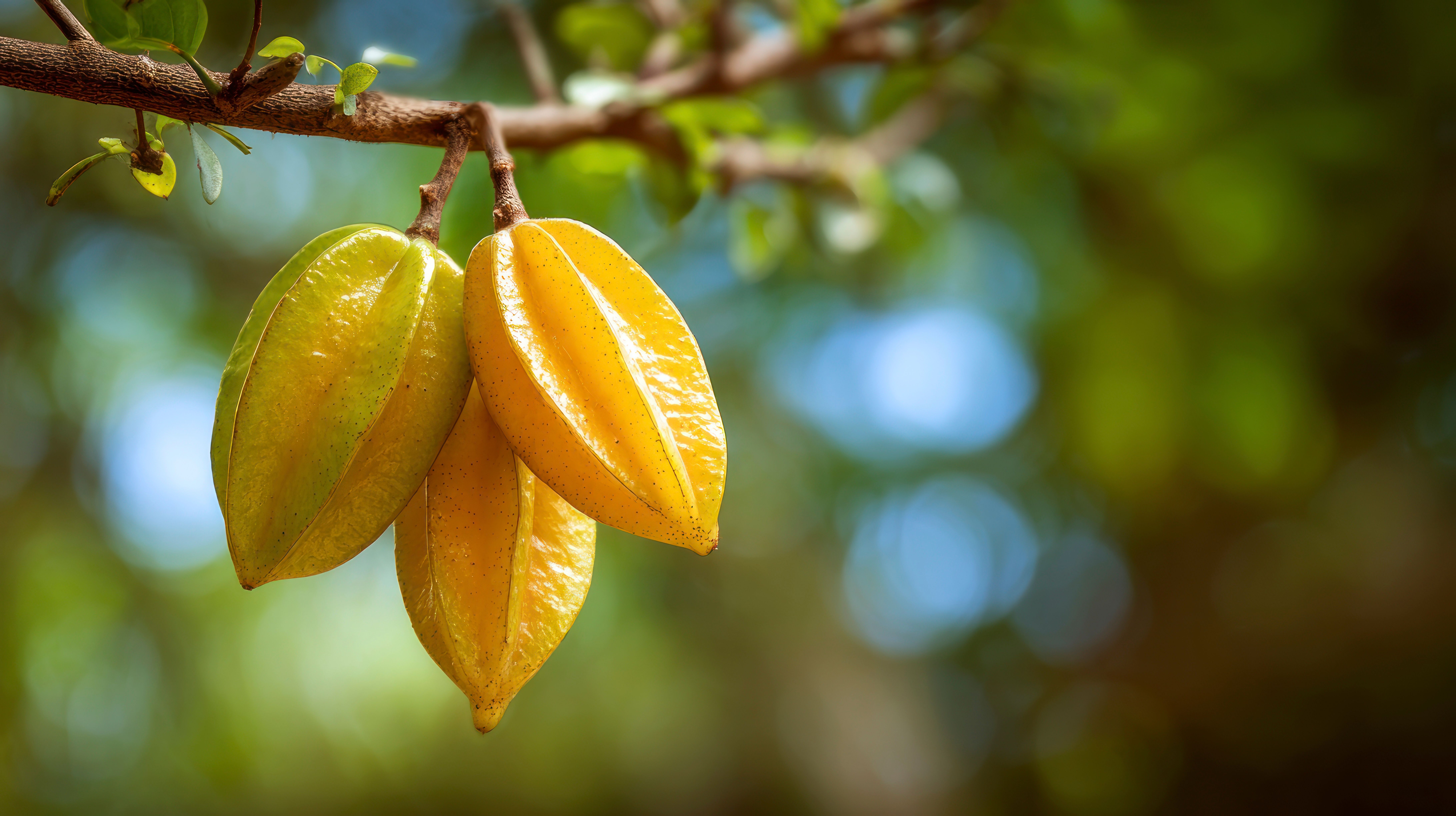Plums in Ayurveda Health Benefits, Uses, and Side Effects
Discover plums benefits in Ayurveda. Learn about antioxidants, digestive support, safe uses, and side effects, plus practical tips and FAQs.

Written by Dr. Mohammed Kamran
Reviewed by Dr. Rohinipriyanka Pondugula MBBS
Last updated on 13th Jan, 2026

Introduction
Plums have a long history in traditional wellness practices and modern nutrition alike. If you’re curious about plum's benefits, you’re in the right place. These juicy stone fruits—and their dried form, prunes—are often considered helpful digestive fruits and are rich in plant compounds commonly known as antioxidants. In Ayurveda (the traditional health system of India), ripe fruits are valued for supporting balance and gentle digestion. Today, science also supports several reasons to enjoy plums and prunes as part of a healthy diet.
What Are Plums? A Quick Nutrition Snapshot
Plums (Prunus domestica and related species) come in many varieties and colors, from deep purple to golden yellow. Fresh plums are hydrating and naturally sweet-tart, while prunes (dried plums) offer a concentrated source of fiber and certain sugars like sorbitol that can support regularity.
Key nutrition features:
• Fiber: Supports digestive health and helps you feel full.
• Vitamin C: Supports immune function and skin health.
• Potassium: Helps maintain normal fluid balance and supports healthy blood pressure.
• Phytochemicals: Including polyphenols (such as anthocyanins in darker plums) that function as antioxidants in the body.
Plums in Ayurveda: The Traditional Perspective on Digestive Fruits
Ayurveda classifies foods by taste (rasa), energetic effect (virya), and post-digestive effect (vipaka). While specific classifications vary by source and ripeness:
• Ripe, sweet fruits are generally considered easy to digest and nourishing.
• Sour-tart flavors may stimulate digestion in moderation.
• Dried fruits like prunes are commonly used traditionally to support regular bowel movements because they moisten and lubricate the intestines.
Practical Ayurvedic-inspired tips:
• Choose ripe, sweet plums if your digestion is sensitive; underripe, very sour fruit can feel harsh for some people.
• Combine with warming spices (like ginger, cardamom, or cinnamon) to support digestion.
• Enjoy fruit as a stand-alone snack or with a small handful of nuts rather than after heavy meals.
Note: Ayurveda complements (not replaces) evidence-based medical care. If you have a health condition, discuss dietary changes with a clinician.
Consult a Top General Physician
Evidence-Based Plums Benefits
1) Gentle Support for Gut Health and Regularity
Prunes are one of the best-studied fruits for easing constipation. Their natural combination of fiber and sorbitol (a sugar alcohol that draws water into the intestines) can help soften stools and increase frequency. Major health organizations emphasize fiber-rich foods as a first-line strategy for constipation and overall digestive health. Whole plums also contribute to daily fiber intake and hydration, which can support normal bowel movements.
What to try?
• Start with 1–2 prunes per day and increase slowly (for some, 3–4 prunes can be helpful), along with plenty of water.
• Enjoy whole plums regularly as part of your daily fruit intake.
2) Heart-Health Support Through Fiber, Potassium, and Plant Compounds
A higher intake of fruits and vegetables is linked with a lower risk of noncommunicable diseases such as heart disease. Plums and prunes contribute:
• Fiber: Helps support healthy cholesterol levels when eaten as part of a balanced diet.
• Potassium: Supports healthy blood pressure.
• Polyphenols: Plant compounds with antioxidant activity; diets rich in polyphenol-containing fruits are associated with cardiovascular benefits.
3) Antioxidants That Help Counter Everyday Oxidative Stress
Plums, especially darker varieties, contain anthocyanins and other polyphenols that act as antioxidants in the body. Antioxidants help neutralize free radicals—highly reactive molecules formed during normal metabolism and environmental exposure. While the body has its own antioxidant defenses, eating a colorful variety of plant foods provides additional support. Whole-food sources of antioxidants are preferred over supplements for most people.
4) Blood Sugar-Friendly Ways to Enjoy Fruit
Whole fruits, including plums and prunes, can fit into a balanced diet for people aiming to manage blood sugar. Their fiber content helps slow digestion and absorption. Choosing whole fruit instead of juice is key, and portion control matters more for dried fruit because it is more concentrated.
Smart tips:
• Pair plums or a small portion of prunes with protein or nuts to slow absorption.
• Focus on whole fruit; limit fruit juice.
5) Emerging Research on Bone Health
Early research has explored whether daily prunes may help support bone health in postmenopausal women, possibly by influencing bone turnover markers. Findings are promising but not definitive; more robust studies are needed. Prunes can still be a nutrient-dense snack within a bone-healthy diet that includes calcium, vitamin D, protein, and weight-bearing exercise.
How to Use Plums and Prunes Wisely?
Fresh Plums
• Snack: Eat ripe plums on their own for a light, hydrating bite.
• Breakfast: Slice into oatmeal or yogurt with a sprinkle of nuts and cinnamon.
• Salads: Toss wedges of plum into leafy greens with goat cheese, mint, and a lemon-olive oil dressing.
• Savory: Add to grain bowls or pair with poultry or tofu; their tart-sweet flavor complements herbs and spices.
Dried Plums (Prunes)
• Start small: 1–2 prunes per day, then adjust to comfort.
• Soaked prunes: Cover with warm water for 10–20 minutes to soften; enjoy the fruit and the soaking liquid.
• Compote: Simmer prunes with water, orange zest, ginger, and a cinnamon stick until tender.
Juice vs. Whole Fruit
• Whole fruit offers fiber and more satiety. If you choose prune juice, opt for small portions and pair with water and a fiber-rich diet.
Portion and Frequency Tips
• Aim to meet daily fruit needs with variety—fresh plums in season, prunes year-round as needed.
• For constipation, consistent daily intake of prunes may help; increase gradually and drink water to minimize gas.
Ayurvedic-Inspired Recipe Ideas
• Warm Spiced Stewed Plums: Simmer sliced plums with a small amount of water, grated ginger, cardamom, and a touch of cinnamon until just soft.
• Plum Chutney: Cook ripe plums with mustard seeds, cumin, grated ginger, and a splash of apple cider vinegar. Serve with lentils or whole grains.
• Soaked Prunes with Seeds: Soak prunes overnight; serve with toasted sesame or pumpkin seeds for texture and minerals.
Possible Side Effects and Who Should Be Careful
While plums and prunes are generally safe for most people, consider the following:
Digestive Sensitivity
• Gas, bloating, or loose stools: Prunes contain sorbitol and fiber, which can increase gas or cause diarrhea if you eat too much too quickly. Start small and increase gradually with adequate fluids.
• IBS and low-FODMAP diets: Plums and prunes are high in sorbitol, a FODMAP that can trigger symptoms in some people with irritable bowel syndrome. Work with a clinician or dietitian to personalize your plan.
Blood Sugar Considerations
• Whole plums are lower in sugar per portion than prunes. If you monitor carbohydrates for diabetes, count prunes carefully and consider pairing with protein or nuts.
Anticoagulant Medications (e.g., warfarin)
• Plums and prunes contain vitamin K, though less than leafy greens. If you take warfarin, aim for a consistent intake of vitamin K foods and follow your healthcare provider’s guidance.
Allergies
• Stone-fruit allergies can occur. Symptoms may include itching or tingling in the mouth and throat (oral allergy syndrome), hives, or—rarely—more serious reactions. If you suspect an allergy, seek medical advice.
Kidney and Heart Conditions
• Prunes provide potassium. If you have chronic kidney disease or are on a potassium-restricted plan, follow your clinician’s guidance on portion sizes.
Dental Health
• Dried fruits are sticky and sweet. Rinse with water after eating, and maintain regular brushing and flossing to reduce cavity risk.
Children and Older Adults
• For children, offer age-appropriate textures (e.g., thinly sliced plum, prune puree) to reduce choking risk. Discuss persistent constipation with a pediatrician.
• For older adults with constipation, prunes can be a gentle option. Start with small amounts and ensure adequate hydration.
Practical Tips for Buying, Storing, and Enjoying Plums
• Selection: Look for plums that feel heavy for their size with a fragrant aroma. A slight “give” near the stem indicates ripeness; avoid major bruising.
• Ripening: Ripe at room temperature in a paper bag; refrigerate once ripe and eat within a few days.
• Freezing: Slice, pit, and freeze on a tray, then transfer to a container for smoothies or sauces.
• Reducing added sugars: Choose plain prunes without added sugar. If buying canned plums, select those packed in water or juice and drain the liquid.
Simple 7-Day Idea Starter
Day 1: Fresh plum as a mid-afternoon snack.
Day 2: Oatmeal topped with warm spiced stewed plums.
Day 3: Kale salad with sliced plums, walnuts, and lemon dressing.
Day 4: 2 soaked prunes with Greek yogurt.
Day 5: Grilled chicken or tofu with a quick plum chutney.
Day 6: Quinoa bowl with plum, cucumber, mint, and feta.
Day 7: Overnight chia pudding with chopped plum and cinnamon.
Consult a Top General Physician
Consult a Top General Physician

Dr. Md Yusuf Shareef
General Practitioner
8 Years • MBBS
Hyderabad
Apollo 24|7 Clinic, Hyderabad

Dr. M L Ezhilarasan
General Practitioner
6 Years • MBBS
Visakhapatnam
Apollo 24|7 Clinic - Andhra Pradesh, Visakhapatnam

Dr. Dhankecha Mayank
General Practitioner
6 Years • MBBS
Hyderabad
Apollo 24|7 Clinic - Telangana, Hyderabad

Dr. Chethan T L
General Physician/ Internal Medicine Specialist
5 Years • MBBS, MD, DNB (General Medicine)
Bengaluru
Apollo Medical Center, Marathahalli, Bengaluru

Dr. Rajib Ghose
General Physician/ Internal Medicine Specialist
25 Years • MBBS
East Midnapore
VIVEKANANDA SEBA SADAN, East Midnapore
Consult a Top General Physician

Dr. Md Yusuf Shareef
General Practitioner
8 Years • MBBS
Hyderabad
Apollo 24|7 Clinic, Hyderabad

Dr. M L Ezhilarasan
General Practitioner
6 Years • MBBS
Visakhapatnam
Apollo 24|7 Clinic - Andhra Pradesh, Visakhapatnam

Dr. Dhankecha Mayank
General Practitioner
6 Years • MBBS
Hyderabad
Apollo 24|7 Clinic - Telangana, Hyderabad

Dr. Chethan T L
General Physician/ Internal Medicine Specialist
5 Years • MBBS, MD, DNB (General Medicine)
Bengaluru
Apollo Medical Center, Marathahalli, Bengaluru

Dr. Rajib Ghose
General Physician/ Internal Medicine Specialist
25 Years • MBBS
East Midnapore
VIVEKANANDA SEBA SADAN, East Midnapore
More articles from General Medical Consultation
Frequently Asked Questions
Q1: Are plums good for constipation?
Yes—especially prunes (dried plums). Their fiber and natural sorbitol draw water into the intestines and can help soften stools. Start with 1–2 prunes daily, increase slowly, and drink water.
Q2: Are prunes and dried plums the same thing?
Yes. Prunes are simply dried plums. Drying concentrates fiber, sorbitol, and natural sugars, so smaller portions go a long way.
Q3: Do plums have antioxidants?
They do. Plums contain polyphenols—such as anthocyanins in darker varieties—that act as antioxidants. A varied, colorful produce intake is a great way to get these compounds.
Q4: Can people with diabetes eat plums or prunes?
Typically yes, as part of a balanced plan. Choose whole fruit, watch portion sizes (especially for prunes), and consider pairing with protein or nuts to help steady blood sugar. Work with your healthcare provider for individualized goals.
Q5: How many prunes are safe to eat per day?
Tolerance varies. Many people do well with 2–4 prunes daily. Too many at once may cause gas or loose stools. Increase gradually and drink water.




